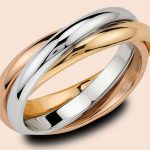Many people wonder why sunglasses with the blue lens are so popular. The answers to these questions may surprise you. These sunglasses are designed to reduce eye fatigue, protect from harmful UV rays, and improve sleep habits. But are they safe? Here are some answers to whether you’re interested in blue sunglasses for a new look or want to know why these glasses are so popular.
Do blue lens sunglasses reduce eye fatigue?
These lenses can help you reduce eye fatigue by improving the contrast between light and dark areas. They are often marketed as blue blockers, so they are instrumental in bright or hazy conditions. However, they can be uncomfortable to wear in bright or sunny conditions. Therefore, self-tinting lenses should be used only under the advice of an eye doctor. In some cases, they may not even work at all.
Self-tinting lenses can improve visual comfort and reduce eye fatigue during physical activities. They are great for sports like football and basketball, as they can enhance vision while reducing eye fatigue. While they significantly improve visual comfort, self-tinting lenses do have their limitations. They cannot be worn while driving, for example. However, self-tinting lenses are not a permanent solution, and they should not be used during sports like boxing or soccer.
Do blue lens sunglasses improve sleeping habits?
If you spend a lot of time on a computer screen, wearing a pair of blue-light glasses may help you sleep better at night. These glasses can regulate the body’s circadian rhythm, which cycles through the day and night approximately every twenty-four hours. The stronger the light is, the earlier the circadian rhythm will be disturbed. Moreover, lack of sleep directly impacts decision-making, relationships, and even behaviors in the workplace.
A new study claims that wearing blue-light-blocking glasses can improve your sleep habits. The glasses prevent blue light from entering your eyes, preserving the Melatonin Window. Other benefits of wearing these glasses are improved circadian alignment and faster sleep. The scientific evidence that these glasses can improve your sleep habits is overwhelming. Moreover, you don’t need a prescription to purchase these glasses. Instead, you can easily find one online and save a lot of money.
Are blue lens sunglasses dangerous?
You may wonder: Are sunglasses with blue lenses bad for your eyes?
Blue light, 400-500 nanometers long, is everywhere. While we don’t experience too much blue light from our phones or the sky, we are surrounded by it, and it can harm our eyes. Investing in blue light-filtering sunglasses is one way to protect our eyes. We’ll cover the different kinds of blue light below.
While the ultraviolet rays emitted by the sun are not harmful to our health, too much exposure can cause cataracts, which affect your eyesight. Blue-light-filtering sunglasses offer a good balance between UV protection and aesthetics. They can also help hide your imperfections and make you look more relaxed. In addition to helping you look better, sunglasses can also increase your confidence. Wearing a pair of shades at the beach or a party is a great way to feel calm and put yourself on the map.
Are blue lens sunglasses hypoallergenic?
There are two types of frames for blue lenses in sunglasses. One type is made of petroleum-based plastic, while the other is made from cellulose acetate, a synthetic material. Both frames are made using the same process, but the materials are not hypoallergenic. Injection-molded frames are manufactured using petroleum-based plastic instead of cellulose acetate. They are made with a specialized mold, and then the plastic is injected into the frame. The frame is then cooled, and the finished product is usually made from stainless steel or aluminum. It is then painted in different colors to match the lenses. The frames are generally lightweight and durable, but you should be careful if you have sensitive skin or are allergic to nickel. Injection-molded frames are less expensive and are more flexible than cellulose acetate ones. However,
Allergies to metal frames are a common problem among people. Luckily, sunglasses with blue lenses are hypoallergenic, thanks to the materials used in the frames. Alloy-resistant metal frames are usually made from titanium, stainless steel, silver, or gold. Pure titanium, commonly used for sunglasses, is hypoallergenic and won’t contain nickel, but it will cost you more. For those who have an allergy to metals, titanium is the best choice.





